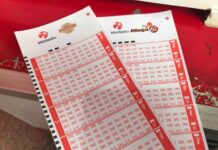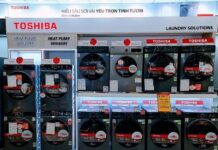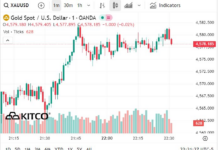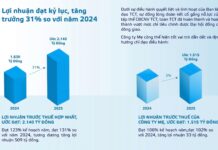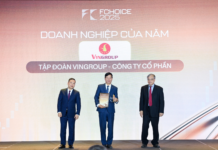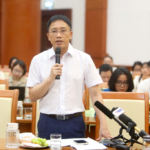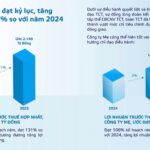On November 18th, the Hanoi Tax Department organized a training and support conference for business households transitioning from lump-sum tax to self-declaration and upgrading to enterprise status. Many concerns of business households were addressed, focusing on issues such as invoices, receipts, and handling inventory when switching to tax declaration.
Mr. Le Huu Truong, a business owner specializing in Vietnamese sausages and pho in Hanoi, shared that he purchases raw materials from wholesale markets and local markets but cannot obtain input invoices. “I want to request input invoices to comply with regulations, but I’m unsure how to proceed,” Mr. Truong stated.
Declaring input invoices is not just a concern for small traders; even large-scale, high-value business owners share the same worries.
Mr. Truong Van Trung, who operates a used car business on Nguyen Xien Street in Hanoi, mentioned that according to the planned classification of business households for tax management starting in 2026, his business falls under Group 3, with an annual revenue of 3–50 billion VND. He raised the issue of not having input invoices when purchasing used cars from individuals during tax declaration.

Mr. Nguyen Tien Minh, Deputy Director of the Hanoi Tax Department, addresses the concerns raised by business households.
Responding to business households, Mr. Nguyen Tien Minh, Deputy Director of the Hanoi Tax Department, emphasized the importance of understanding the significance of input invoices and receipts.
According to Mr. Minh, input invoices and receipts are not the basis for calculating revenue for small-scale business households. The use of invoices and receipts for tax calculation applies to business households with an annual revenue of 3 billion VND or more, where they serve as the basis for cost accounting.
“However, all business households, including individuals, must maintain invoices and receipts. We have implemented the Lucky Invoice Program to ensure all goods have documentation proving their origin. For example, those selling Vietnamese sausages, pho, or similar products will have their seller information traceable through these documents. At the very least, business households must retain these records,” Mr. Minh explained.
Regarding purchases such as used vehicles from consumers, the Hanoi Tax Department leader noted that not everything requires an invoice.
“When purchasing assets from individuals, we create documentation as required and avoid cash transactions. If you already have a company and purchase a vehicle from another company with an invoice, declare it as usual.
When purchasing from an individual, this expense is not deductible for value-added tax but is still considered a reasonable cost. For instance, if you buy a car for 1 billion VND and sell it for 1.1 billion VND, the difference is the profit subject to tax,” Mr. Minh clarified.
Regarding inventory held by business households transitioning to tax declaration or upgrading to enterprise status, the tax authority acknowledged this as a critical issue. The Hanoi Tax Department leader mentioned that the draft policy will include specific guidelines for handling inventory.
The tax authority recommends that business households prepare all relevant documentation, including not only invoices but also inventory records and proof of goods origin, to ensure transparency and ease during inspections and accounting.
“Deputy Director of the Tax Department: The More Transparent and Open Businesses Are, the Less Likely They Are to Face Administrative Violations”
Mr. Mai Sơn, Deputy Director of the Tax Department, emphasizes: “The more transparent and compliant business households are, the less likely they are to face administrative violations. With proper collaboration with tax authorities, those who adhere to regulations will not be subject to inspections. In practice, audits are only conducted when there is a perceived risk.”
Small Businesses Avoiding Input Invoices May Face Tax Evasion Suspicion
The Tax Authority emphasizes that businesses failing to obtain input invoices for purchases will face significant legal and financial risks.


